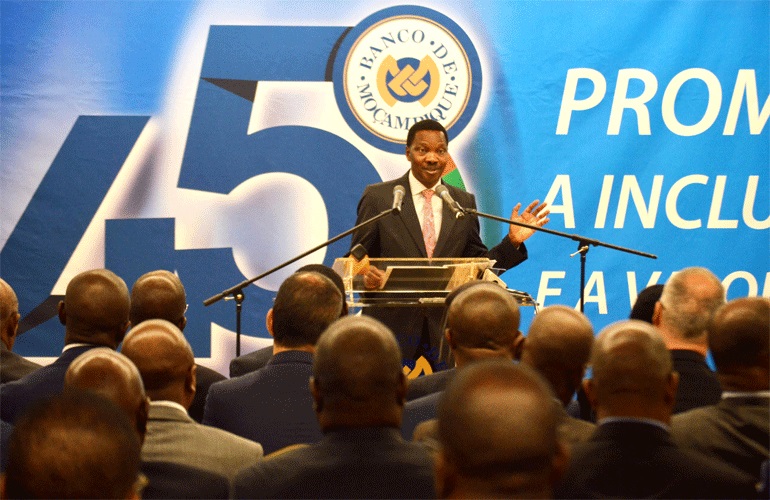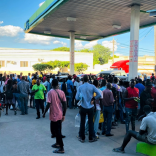TotalEnergies further delays $20 bln Mozambique LNG project, FT reports
Mozambique: Work on sovereign wealth fund complete next year – central bank governor

Photo: Noticias
The governor of the Bank of Mozambique, Rogerio Zandamela, on Monday promised that in 2020 the technical work on setting up a sovereign wealth fund will be completed.
Speaking during a ceremony marking the end of the economic year, Zandamela said the proposed fund will be “a transparent model for the management of revenue from mineral resources”.
The proposal, he added, will form the basis for discussions with all interested parties, including civil society.
Zandamela said a preliminary assessment of the measures undertaken by the central bank in 2019 is “very positive”. Inflation had remained “low and stable”, and the current annual inflation rate is around two per cent.
That, he added, was in line with the Bank’s medium term goal of single digit inflation (i.e. annual inflation of less than 10 per cent) and was substantially lower than the convergence targets of SADC (Southern African Development Community) of three to seven per cent.
The country’s international reserves cover about seven months’ worth of imports of goods and services, which is “comfortably above the minimum acceptable figure of three months”.
Over the year, the solvency ratio of the banking system “remained robust, at around 25 per cent, well above the established minimum of 12 per cent”, said Zandamela, “while the amount of non-performing loans declined”.
The governor also claimed that the exchange rate has remained stable, at between 60 and 65 meticais to the US dollar. However, a careful reading of the exchange rate shows a gradual slide in the value of the national currency over the past few weeks.
Zandamela said the central bank’s main target for 2020 remains keeping the rate of inflation low. “Our perspectives point to continued price stability”, he added. He forecast that annual inflation next year, while higher than this year, would still be within the single digit target.
Economic activity would improve in 2020, he said, with Gross Domestic Product growing by four per cent. He based this growth forecast on the expected reconstruction after cyclones Idai and Kenneth, which hit the country in March and April, on the government settling its debts to domestic suppliers, on increased credit for private business and on further investment in the oil and gas sector.
“We shall remain committed to a flexible exchange regime”, Zandamela added. “so that we will have the capacity to absorb exogenous shocks. We shall consolidate reforms in the exchange market so that the exchange rate reflects the supply and demand for foreign currency on the domestic market”.
He promised that a new operator and manager of the electronic payment system, the American company Euronet, will take over from the Portuguese firm Bizfirst with whom the Mozambican banking system has, to put it mildly, a chequered history.
In disputes over payment, Bizfirst switched off, on two occasions, the electronic systems which most of the Mozambican banks rely on for their ATMs and card machines. The worst blackout, which lasted for five days in November 2018, infuriated Zandamela who accused Bizfirst of launching cyber-attacks against Mozambique, and ruled out any new contract with Bizfirst.
The contract with Euronet will take effect in 2020, and Zandamela believed this would mark “a turning point” in Mozambique’s banking history.
“The new infrastructure will be more secure and solid, with greater coverage of transactions, and will allow greater inter-operability of the entire financial system”, he said.












Leave a Reply
Be the First to Comment!
You must be logged in to post a comment.
You must be logged in to post a comment.